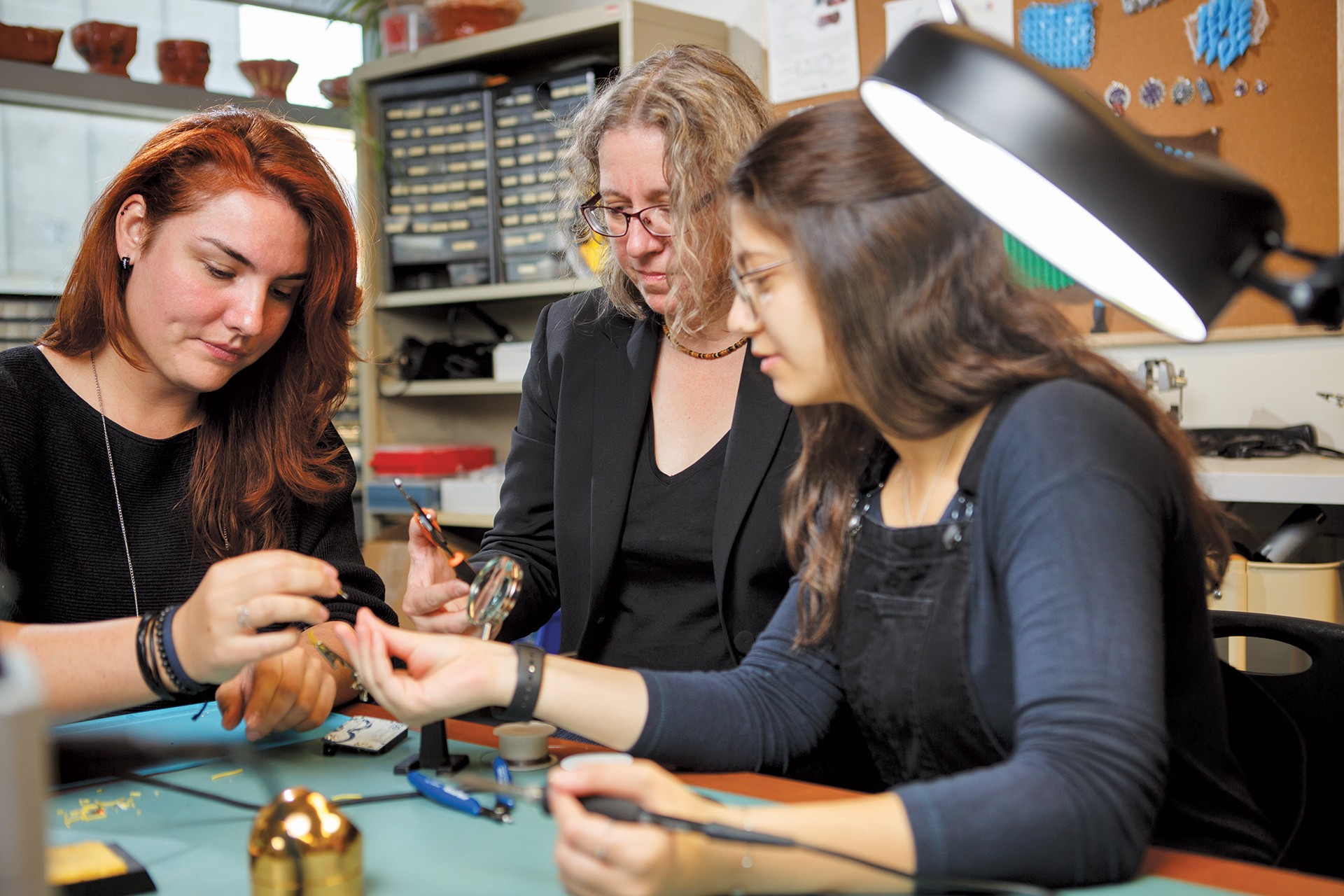NEXT-GEN
INNOVATION
Inventively looking past our challenges
2022 HIGHLIGHTS
Concordia named among best maker schools in the world
Concordia is the only Quebec university and one of six Canadian institutions named among the 200 Best Maker Schools in Higher Education by Make: and Newsweek.
“We have worked relentlessly to create mentoring and guidance frameworks to allow students from all backgrounds and disciplines to engage in material practice to develop skills that prepare for the future of work and to become responsible and careful citizens,” says Ann-Louise Davidson, associate professor of education. Davidson holds the Concordia University Research Chair in Maker Culture (Tier 2) and is associate director of Concordia’s Milieux Institute for Arts Culture and Technology, where she directs #MilieuxMake, the institute’s makerspace initiative.
Davidson says that making is integrated in many large projects at Concordia. “Our ultimate goal is to bring maker culture into university learning so it is no longer just an extra-curricular activity but the basis of a new mindset for engaging with the world’s most pressing problems,” she says.
The new Innovation Lab allows students to pitch and test new ideas
Launched in 2021, the “Innovation Lab is designed to be a playground where students can freely come up with bold ideas, test them, iterate, experiment and fail, all while building up their innovation skills,” explains Nadia Bhuiyan, vice-provost of partnerships and experiential learning and professor of mechanical, industrial and aerospace engineering.
Ann-Louise Davidson, associate professor of education, has been appointed as director. She says that experiential learning is central to the Innovation Lab. Cohorts of students work on challenges with community and industry partners and mentors and propose innovative solutions to real-life problems while building the skills to become confident innovators. Students are accompanied through various design thinking approaches and given tools to boldly imagine, lead and change the world.
 Concordia named among best maker schools in the world
Concordia named among best maker schools in the world
INNOVATIONConcordia, V1 Studio and District 3 Innovation Hub launch venture program for PhDs
After working with more than 600 scientific entrepreneurs through Concordia’s District 3 Innovation Hub and the Quebec Scientific Entrepreneurship Program, Xavier-Henri Hervé, BEng 87, DSc 11, and his colleagues discovered a need: just one per cent of Montreal PhDs manage to commercialize their research.
Hervé is co-founder of the venture builder V1 Studio, which launched its Scientific Venture Program in collaboration with Concordia and District 3. The two year postdoctoral program aims to build stronger bridges between the scientific and business innovation sectors, foster lab-to-market potential for PhD candidates and recent grads and support them in building their own deep technology companies.
District 3-backed startup takes second in IBM Watson AI XPRIZE competition
Montreal-based startup Aifred Health, which uses machine learning to treat depression, earned second spot and $1 million USD from the IBM Watson AI XPRIZE competition.
The Aifred Health team, David Benrimoh, Sonia Israel, Robert Fratila and Kelly Perlman, was one of more than 150 registered teams — all using artificial intelligence (AI) to tackle challenges facing humanity — in the international competition that started five years ago.
$1.6M grant for AI and software engineering research
Emad Shihab, associate professor of computer science and software engineering and Concordia University Research Chair in Software Analytics, and his team earned a prestigious Natural Sciences and Engineering Research Council of Canada (NSERC) Collaborative Research and Training Experience (CREATE) program grant, valued at $1.6 million over six years.
The funds will support their NSERC CREATE training program on the Development, Deployment and Servicing of Artificial Intelligence-based Software Systems, which bridges software engineering and artificial intelligence. “I’m really excited that the program doesn’t just consider the technical aspects of AI but also the social aspects of these systems,” says Shihab.